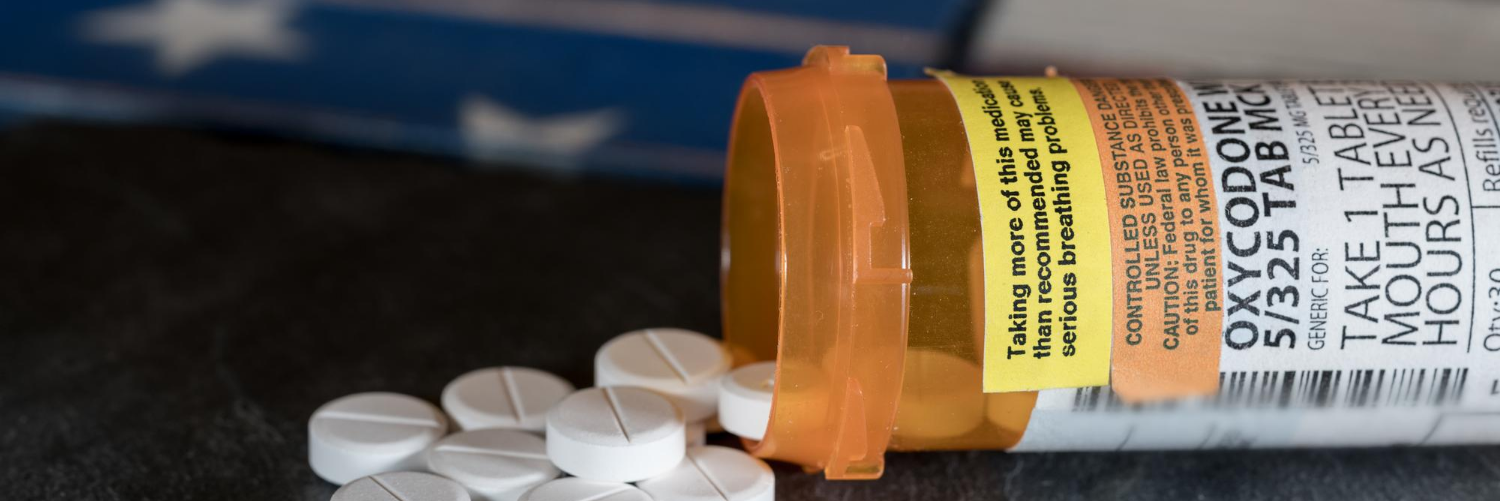3M Appeals For Stay In Earplugs MDL Citing Judge's Error

In its opening brief to the 7th U.S. Circuit Court of Appeals, 3M claimed that the judge misunderstood precedent, ignored significant evidence, and adopted an unduly narrow construction of his inherent jurisdiction to block action against 3M.
It's now up to the appeals court, 3M claimed, to fix the mistakes, suspend current MDL action against 3M, and allow 3M and Aearo to use the bankruptcy process to find a fair settlement of the military veterans' claims.
After all, as 3M reminded the 7th Circuit, it is the procedure that many other federal appellate courts have supported in mass tort claims that were halted when a subsidiary defendant declared bankruptcy. W.R. Grace & Co, Pfizer-owned Quigley Corp, Georgia-Pacific LLC and its bankruptcy subsidiary Bestwall LLC, USA Gymnastics, Purdue Pharma LP, and, of course, Johnson & Johnson's LTL Management LLC are among the companies listed by 3M. (In a mirror-image of the 3M issue, the 3rd Circuit is considering a New Jersey bankruptcy court's decision to delay tort claims against J&J because to LTL's bankruptcy.)
You don't have to be a fortune teller to predict that if the 7th Circuit sides with 3M, joining other courts that have allowed viable parent companies to escape crushing mass tort litigation through the bankruptcy of a subsidiary, the Chapter 11 strategy will become an increasingly appealing play for MDL defendants.
That would be bad news for plaintiffs' attorneys. As expected, the plaintiffs' steering committee in the earplugs MDL stated in an email statement that 3M's appeal is without merit. According to the statement, the 7th Circuit should affirm the judge's detailed conclusion by rejecting non-debtor 3M's attempt to shelter itself through the bankruptcy procedure. The plaintiffs' attorneys are eager to hold 3M accountable for inflicting irreparable hearing impairment on hundreds of thousands of men and women who served our country.
The bankruptcy court, according to 3M's brief, made at least two critical errors in deciding that the automatic stay on action against Aearo, its insolvent company, should not apply to 3M. The judge, according to the brief, erred when he stated that the 7th Circuit has not recognised that an automatic stay for a corporate subsidiary might extend to the parent firm in certain situations.
According to the 3M brief, several of the appellate courts that have authorised an extension of the automatic stay have reasoned that action against the parent corporation will have an immediate, negative impact on the bankrupt subsidiary. The 7th Circuit has not explicitly joined that consensus, but 3M claims that the appeals court has not ruled out the possibility of extending the stay to protect a parent company - and that this case is an example of how litigation against the parent will harm the bankrupt subsidiary's overlapping and intertwined interests.
According to 3M, the judge also neglected to give enough weight to insurance plans shared by Aearo and 3M. If 3M is obliged to continue pursuing cases in the MDL, that pool of money, according to 3M, would dry up. According to 3M, the loss of the insurance money will reduce Aearo's insolvent estate. 3M claimed that the bankruptcy judge should have extended the automatic lawsuit stay to encompass them for that reason alone.
The jury placed a high value on 3M's promise to offer an unlimited backup for any Aearo liability arising from the earplug case. The jury effectively determined in that agreement that Aearo's capacity to discharge its obligations and restructure would be unaffected by pending action against 3M.
Even if the court rightly declined to prolong the automatic stay, 3M contended, he erred in refusing to utilise his inherent jurisdiction to enjoin MDL proceedings against 3M. He determined that he lacked authority to enjoin existing action against 3M since those lawsuits were unrelated to Aearo's bankruptcy. 3M contended that he misapplied 7th Circuit law by focusing on the actual impact of 3M's current suit against Aearo rather than the potential harm. According to 3M, this inaccuracy penetrated Graham's conclusion so profoundly that his decision must be reversed.
Courts enabling 3M to stop litigating in the MDL and reach a worldwide settlement through the bankruptcy process would best serve the public interest, according to 3M.
Meanwhile, the MDL is proceeding even as the 7th Circuit appeal heats up. The next bellwether case in the MDL has a trial date set for February, but it might be delayed. Both parties have filed requests for summary judgement on 3M's independent culpability. 3M has filed briefs in appellate court challenging certain of the MDL judge's evidentiary decisions. According to 3M, hundreds of new plaintiffs filed earplug lawsuits in October alone, joining over 200,000 military veterans who had previously filed claims.
N.H. To Get $15M In Opioid Settlement From Walmart

New Hampshire's Attorney General said that he has agreed to join a nationwide settlement with Walmart to resolve charges that the firm contributed to the opioid addiction issue by failing to properly regulate opioid dispensing at its shops.
The deal would provide $15.5 million to New Hampshire over the next year to provide treatment and rehabilitation programmes for those suffering from opioid use disorder. It will also necessitate considerable adjustments in how Walmart's pharmacies handle opioids, such as adhering to stringent new supervision standards to prevent fake prescriptions and identify suspect prescriptions.
The governor of New Hampshire stated that confronting the opioid issue straight on requires rethinking institutions from the ground up. He also stated that it has been the major emphasis of his government since its inception. He expresses gratitude to the Attorney General and the New Hampshire Department of Justice for their ongoing efforts to reform distributor practises and enforce financial accountability for their conduct.
As a stopgap against so-called pill-mill physicians, the deal with Walmart includes court-ordered measures to closely monitor, disclose, and exchange data regarding suspicious activity linked to opioid prescriptions, as well as to prohibit patients from getting numerous prescriptions for opioids.
Over the last two decades, opioids have caused over 500,000 overdose fatalities in the United States, and in recent years, opioid deaths have climbed to record levels, approximately 80,000 per year countrywide, due to a continuous addiction wave fueled mostly by fentanyl.
Purdue Pharma and Mallinckrodt, two opioid producers, were previously sued by New Hampshire. Both sought bankruptcy protection. The court has approved the Mallinckrodt bankruptcy plan, under which New Hampshire would receive money. Purdue's bankruptcy strategy is pending judicial approval. Endo, an opioid maker, declared bankruptcy earlier this year. In that instance, attorneys general struck a $450 million pre-bankruptcy settlement, and the New Hampshire Attorney General's Office is now involved in the bankruptcy proceedings.
New Hampshire filed lawsuits against the nation's largest opioid distributors (McKesson Corp, Cardinal Health, and Amerisource Bergen). Those cases were settled when New Hampshire joined the attorneys' general multistate settlement, which would pay New Hampshire about $115 million over the next 18 years. In early September, New Hampshire negotiated a $40.5 million settlement with opioid maker Johnson & Johnson. Four large nationwide settlements have been reached with major drugstore chains CVS and Walgreens, as well as opioid manufacturers Teva and Allergan, and are being reviewed by the Attorney General's office, with judgments due by the end of the year.
Oregon To Get $173M From Pharmacy Companies In Opioid Suit

Oregon will receive up to $173 million to prevent and treat addiction and drug use disorder as part of three nationwide settlements with pharmacy chains engaged in the opioid epidemic, according to a statement from the Oregon Attorney General.
Oregon's portion comes from $13.7 billion in three nationwide settlements made by other attorneys general with Walmart, CVS, and Walgreens since November. CVS and Walgreens, the two largest drugstore companies in the United States, struck a $10.7 billion nationwide deal. In November, Walmart reached a $3 billion nationwide settlement.
The settlements bring an end to another legal chapter in Oregon's opioid epidemic, which has devastated lives from rural to urban Portland. Every year, hundreds of Oregonians are killed by opioid overdoses, and the number is growing. Oregon had 280 unintended opioid overdose fatalities in 2019. In 2020, there will be 472 fatalities. In 2021, 745 Oregonians died as a result of opioid overdoses.
According to the attorney general, pharmacies were a critical link in the supply chain that contributed to the largest drug-induced public health disaster in modern American history. This may appear to be a significant sum of money, and it is, yet it just touches the surface of the damage done by America's top drugstore companies.
According to an Oregon Department of Justice spokesperson, 55% of the money will go to 81 Oregon towns and counties with populations higher than 10,000. The remaining 45% of the state's funds will be managed by the Opioid Settlement Prevention Treatment and Recovery Board for statewide initiatives and programmes such as outreach, training, and screenings.
CVS will pay $5 billion, Walgreens will pay $5.7 billion, and Walmart will pay $3 billion under the deals. To get the full sums, states must sign up to the accords. Oregon counties and towns must also sign the agreements in order for the state to get the entire sum. In 2021, Oregon agreed a $329 million settlement with opioid manufacturer Johnson & Johnson as well as three pharmaceutical distributors: McKesson, Cardinal Health, and AmerisourceBergen. In that event, the agreement was signed by all Oregon cities and counties.
The pharmacy businesses committed to monitoring, disclosing, and exchanging data on suspicious activity related to opioid prescriptions as part of the arrangement.
States have till the end of the year to consider and sign up for the accords. Following that, the three corporations will approach municipal governments around the country for approval in the first quarter of 2023.
Payments may begin as early as the second half of 2023. The majority of Walmart's payments will be made in the first year. CVS payments will be made over a 10-year term, while Walgreens payments will be made over a 15-year period.
As part of a $6 billion national accord, Oregon also secured a $97 million settlement with Purdue Pharma and the Sackler family in March. This comes after states accused the corporation of using deceptive marketing practises to target Oregon seniors who use the painkiller OxyContin while downplaying the drug's hazards.
Judge Dismisses Over 1,100 Zostavax Suits

The United States District Judge hearing overall Zostavax cases has dismissed over 1,100 claims alleging that the shingles vaccination caused consumers to acquire the illness it was supposed to prevent.
Merck launched Zostavax in 2006 as the first shingles vaccine licenced in the United States, including a single-dose injection containing a live virus targeted to guard against the painful condition's development. However, lawsuits claim that the vaccine was defectively constructed and offers an unacceptable danger since the live virus was not appropriately attenuated, causing neurological difficulties, autoimmune illnesses, eyesight and hearing loss in certain users.The decision has no bearing on hundreds of similar lawsuits alleging that Zostavax caused serious auto-immune diseases and other damage.
Given the similar factual and legal issues raised in complaints filed throughout the federal court system, all claims are currently centralised before the United States District Judge in the United States District Court for the Eastern District of Pennsylvania, as part of a federal multidistrict litigation (MDL), where several groups of "bellwether" cases are being prepared for early trial dates to help gauge how juries will respond to certain evidence and testimony that will be repeated throughout.
The Zostavax bellwether procedure categorises claims into three categories, including Group A instances in which plaintiffs claim they got shingles or shingles-related ailments after getting the injection. Other autoimmune illnesses that fall under Group B include postherpetic neuralgia, acute disseminated encephalopmyelitis (ADEM), paralysis, transverse myelitis, meningitis, hemorrhagic strokes, and other traumas. Finally, Group C examples comprise those who acquired hearing loss after using Zostavax.
The judge presiding over the Zostavax MDL issued a memorandum indicating that all Group A lawsuits involving shingles injuries would be dismissed after the Court disregarded expert witness testimony tying the live virus vaccination to the reactivation of the latent shingles virus in recipients.
According to the judgement, Merck made it apparent from the start that Zostavax's efficacy rate was approximately 50% and declined with time. The efficacy also decreased with the patient's age. While Merck admits that an immunocompetent adult who takes Zostavax can acquire shingles from the live-attenuated virus, he refers to studies that demonstrate just one such instance has ever happened. There is no proof in any other such case.
The ruling will result in the dismissal of 1,189 Zostavax shingles claims, affecting almost half of Merck's federal litigation. Plaintiffs have indicated that they want to appeal the verdict, and Merck is still facing hundreds of other Zostavax lawsuits, which often entail the most serious injuries and side effects associated with Zostavax.
A bellwether trial is set to be undertaken next year to help the parties judge how jurors are likely to respond to evidence relating Zostavax and auto-immune illnesses asserted in the Group B claims, with a hearing loss claim likely to be scheduled for trial in 2024.
While the outcomes of the bellwether trials will not be binding on other plaintiffs, they will be closely watched by parties involved in the litigation and are expected to have a significant impact on any eventual shingles vaccine settlements that the manufacturer may offer to individuals who experienced problems with Zostavax, which may be necessary to avoid the need for hundreds of individual trial dates to be scheduled in U.S. District Courts nationwide in the coming year.
